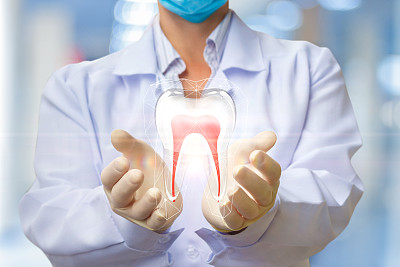Understanding the Need for Tooth Extraction When and Why to Remove a Problematic Tooth
Summary: Tooth extraction remains a common dental procedure that often raises questions about necessity and timing. This article delves into the key reasons for tooth extraction, including the prevention of further dental issues, managing severe decay or damage, addressing overcrowding, and handling complicated teeth, such as wisdom teeth. Understanding these reasons can help patients make informed decisions about their dental health, ensuring that unnecessary complications are avoided while also maintaining an aesthetically pleasing smile. By comprehensively discussing the when and why of tooth extraction, this piece serves as a guide for those facing potential removal of a problematic tooth.
1. Preventing Further Dental Issues

In many cases, tooth extraction is a preventative measure aimed at safeguarding the overall dental health of the patient. When a tooth shows signs of infection or severe decay, it can lead to complications that extend beyond the affected area. If left untreated, bacteria from the decayed tooth can spread to neighboring teeth and gums, potentially causing widespread dental issues, including gum disease and abscesses.
By removing a problematic tooth, dental professionals can halt the progression of these infections, thus protecting adjacent tissues and teeth. This proactive approach can eliminate the need for more extensive treatments in the future, saving both time and financial resources.
Moreover, extraction can serve as a necessary intervention in cases where ongoing treatments are ineffective. If a tooth fails to respond to root canal therapy or other treatments aimed at preserving it, extraction is often the only viable option left, preventing further complications.
2. Severe Decay or Damage Management
One of the most common reasons for tooth extraction is severe decay or damage that cannot be repaired. This scenario often arises from neglect, trauma, or untreated cavities, leading to a tooth that is beyond saving. When tooth decay reaches the pulp, it may become infected and cause significant pain and discomfort for the patient.
In cases like these, dentists may recommend extraction because attempting to save the tooth may only prolong discomfort and create ongoing dental issues. The decision to extract a tooth can relieve the patient of pain and prevent the infection from spreading, which is a crucial consideration for those dealing with severe dental trauma.
Its important to remember that dental restorations like crowns or fillings might not always be sufficient for teeth that have experienced extensive damage. As such, timely extraction becomes essential to maintain a healthy mouth and minimize the risk of further problems.
3. Addressing Overcrowding in the Mouth
Another significant reason for tooth extraction is to address overcrowding, which can lead to a variety of dental problems. In many cases, a dental professional may recommend extraction before orthodontic treatment as the alignment of teeth plays a crucial role in achieving a straight smile.
When teeth are improperly positioned, they may overlap or push against each other, causing discomfort and making cleaning difficult. By extracting one or more teeth, space can be created to facilitate proper alignment and improve dental function for the patient.
This intervention is especially common in adolescents and young adults, where the natural progression of teeth and jaws occurs. In such cases, early extraction can lead to more effective orthodontic treatment and a better outcome in the long run.
4. Complications with Wisdom Teeth
Wisdom teeth often present unique challenges that make extraction necessary. As the final set of molars, they commonly emerge in late adolescence or early adulthood. Unfortunately, many individuals do not have enough space in their jaws for these teeth, leading to impaction.
Impacted wisdom teeth can cause a variety of complications, including pain, infection, and damage to nearby teeth. As they push against adjacent teeth, they can result in misalignment and create additional dental concerns. Extraction of impacted wisdom teeth can alleviate these issues and prevent further complications.
In addition, dental professionals commonly recommend the removal of wisdom teeth even if they are not immediately problematic. Preventative extraction can prevent discomfort and ensure that patients don’t face complications when they are older, making it a common practice in dentistry.
Summary:
Throughout this article, we explored the fundamental reasons for tooth extraction, emphasizing the importance of addressing dental health proactively. Understanding the motivations behind tooth removal, such as preventing further dental issues, managing severe decay, alleviating overcrowding, and tackling complications related to wisdom teeth, can guide patients in making informed decisions about their oral care.
The decision to extract a tooth is never made lightly, and its aimed at ensuring long-term health and well-being. Keeping informed about the reasons behind this procedure can empower patients to engage actively with their dental care and maintain healthy, beautiful smiles.
This article is compiled by Vickong Dental and the content is for reference only.



